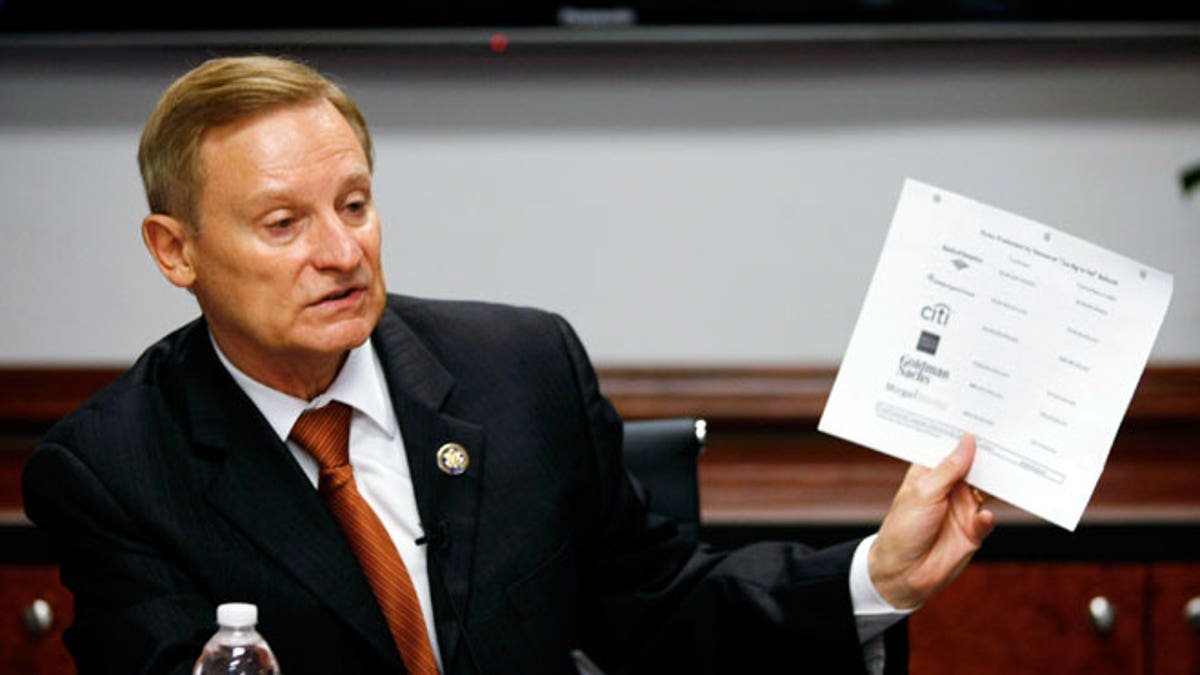
(Reuters)
Rep. Spencer Bachus, who as chairman of the House Financial Services Committee is one of the most powerful lawmakers on Capitol Hill, is the subject of an insider-trading inquiry by a Washington ethics organization, according to a published report.
The report comes as congressional ethics involving securities trading is being debated and after the House signed off on a bill that would tighten rules against insider trading by lawmakers.
According to The Washington Post, the Office of Congressional Ethics is looking into whether or not Bachus, a Republican from Alabama, violated insider-trading laws.
The OCE, which is not to be confused with the official House Ethics Committee, began its inquiry late last year after zeroing in on a number of “suspicious” trades detailed on Bachus’s annual financial disclosure forms, the Post reported.
The ethics organization has told Bachus the matter is being investigated and that they have found probable cause to believe he committed insider-trading violations, the paper said.
Bachus, who as chair of the House Financial Services Committee oversees the U.S. banking and financial services industries, said in a statement, "I welcome this opportunity to present the facts and set the record straight."
It’s worth pointing out that the OCE is a quasi-Congressional organization that looks at potential ethics matters, but is not the House Ethics Committee, which is the body that has authority over the conduct of lawmakers.
The OCE, which must look at all matters sent its way, has the ability to refer matters to the House Ethics Committee, which then needs to decide whether to launch an investigative subcommittee that would be tantamount to a formal investigation.
Bachus has made a number of trades in recent years that coincided with major policy announcements by the government and industries that his committee oversees, the Post said, citing a review by the paper of his disclosure forms.
For example, Bachus generated a $5,715 profit after buying short options on September 29, 2008, the day after a frightening meeting with then-Treasury Secretary Hank Paulson and Federal Reserve chief Ben Bernanke, who warned lawmakers the financial system would meltdown unless the government took bold steps, the Post reported. Short options increase in value as shares depreciate.
That same day Bachus cashed out bullish options that bet shares of General Electric (NYSE:GE) would increase in value, collecting a $12,713 profit right before GE’s shares began to tank, the paper said.
Some of the Bachus trades were inaccurately spelled out in a book that was the basis of a “60 Minutes” story that helped bring the insider-trading issue to light.
“The idea that I or anyone else needed this meeting to know our financial markets were in trouble is just laughable,” Bachus wrote in a letter that criticized the “60 Minutes” report and book. “You would have to be living under a rock not to know by September 18, 2008 that the economy was in bad shape.”
Still, books written about that meeting indicate Bernanke and Paulson -- the caretakers of the U.S. economy -- used scary language they would have almost never used in public statements because it would have only caused more panic in the financial markets and broader economy.
According to the Post, Bachus placed bullish bets on shares of Burlington Northern Railroad while the Bush White House crafted a fiscal stimulus bill in the summer of 2008, cashing out in July for a $16,588 profit. Bachus also made the same bet in August, but took a $2,900 loss, the paper said.




